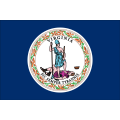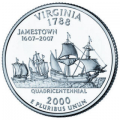Virginia is home to over one hundred accredited nursing schools. To help aspiring nurses organize the large number of choices, we have profiled below the duration, cost, and level of education required for each major nursing role.
Certified nursing assistant (CNA)
Virginia
We've organized a comprehensive list of Virginia nursing schools. Below you'll find information on specific nursing programs such as LPN certificates and ADN, BSN, and MSN degrees. You'll also find a profile of nursing education and careers in each major Virginia city.
Virginia nursing programs and careers
City-specific information
Virginia’s healthcare providers value competence, confidence, and well-rounded experience in their nurses. A quality education places aspiring nurses in good standing to meet these demands. Students should therefore not be deterred by the costs of a nursing degree or certificate program, but rather thoroughly explore their options.
Aspiring nurses who want an intimate and personalized education should strongly consider Virginia’s private colleges and universities. Over 30 private schools have Virginia campuses with nursing programs, including prestigious institutions like George Washington University, Hampton University, Marymount University, and Shenandoah University. The state’s private schools offer a breadth of nursing programs to prepare certified nursing assistants (CNAs), licensed practical nurses (LPNs), registered nurses (RNs), and advanced practice registered nurses (APRNs).
Virginia’s public colleges and universities are a cost-effective option for state residents to pursue nursing education. Since public institutions are funded by the state government, students receive top-notch instruction, often in state-of-the-art facilities. Nursing students who live in Virginia need not worry about taking out hefty loans, because tuition is subsidized for state residents.
Virginia is home to over one hundred accredited nursing schools. To help aspiring nurses organize the large number of choices, we have profiled below the duration, cost, and level of education required for each major nursing role.
Certified nursing assistant (CNA)
- « first
- ‹ previous
- 1
- 2
- 3






